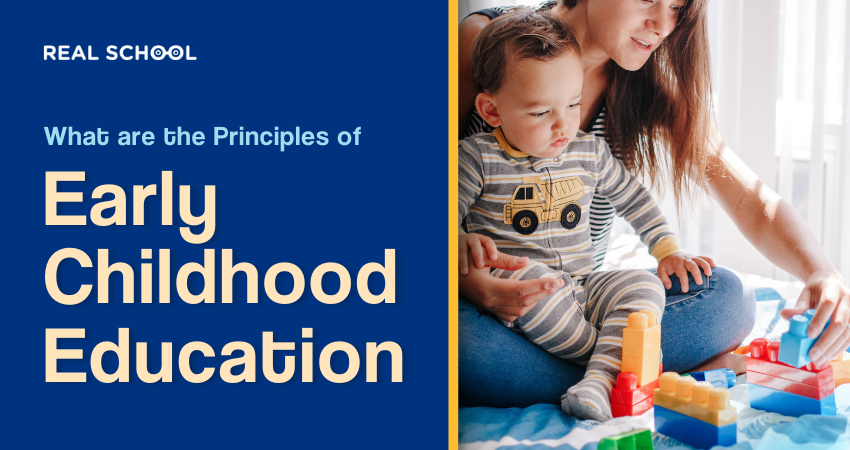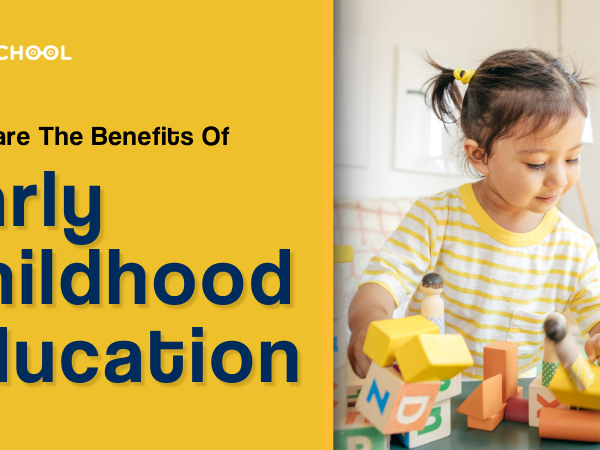Early childhood education is about creating a firm basis for young children’s future learning and development, not merely teaching them basic knowledge and abilities. Early childhood education adheres to a set of guiding principles that influence its philosophy and practices in order to accomplish this. In this essay, we will look at the key principles of early childhood education and their importance in the development of young minds.
The Foundational Principles
Early childhood education is founded on a set of fundamental ideas that stress holistic development, customized learning, and the significance of a child’s early years.
The Principles of Early Childhood Education
Holistic Approach
Early childhood education recognizes that children are complex beings with physical, emotional, social, and cognitive needs. It seeks to address all aspects of a child’s development, fostering well-rounded individuals.
Child-Centered Learning
The focus is on the child as an active participant in their learning journey. Early childhood education tailors instruction to the child’s interests, needs, and developmental stage, promoting engagement and enthusiasm for learning.
Play-Based Learning
Play is the primary mode of learning for young children. Early childhood education integrates play into the curriculum, allowing children to explore, experiment, and develop essential skills through enjoyable activities.
Responsive Teaching
Educators in early childhood settings are trained to be responsive to the individual needs and interests of each child. This personalized approach ensures that every child receives the support and guidance they require.
Social and Emotional Development
Early childhood education places significant emphasis on nurturing social and emotional skills. Children learn to build relationships, manage their emotions, and develop empathy and self-regulation.
Also Read: Why Montessori Schools Are Ideal for Early Childhood Education?
Role of the Environment in Early Childhood Education
A well-designed and stimulating environment plays a crucial role in early childhood education. Classrooms are organized to facilitate exploration and discovery, providing children with a safe and nurturing space to learn and grow.
Conclusion
Early childhood education principles are the guiding lights that illuminate the course of a child’s early learning journey. Early childhood education sets the framework for a lifetime of effective learning and personal growth by embracing a holistic approach, child-centered learning, play-based activities, responsive teaching, and a focus on social and emotional development. Know more – The Real School
FAQs
1. What is the main goal of early childhood education?
Ans: The main goal of early childhood education is to provide a strong foundation for a child’s future learning and development, encompassing cognitive, social, emotional, and physical growth.
2. How does early childhood education differ from traditional schooling?
Ans: Early childhood education focuses on a child’s overall development through play-based learning, individualized instruction, and a holistic approach. Traditional schooling often emphasizes academics and standardized curriculum.
3. What is the significance of play in early childhood education?
Ans: Play is considered essential in early childhood education as it fosters creativity, problem-solving skills, and social development. It allows children to learn through hands-on experiences and exploration.
4. What role do teachers play in early childhood education?
Ans: Teachers in early childhood education settings serve as facilitators and guides, creating a nurturing and responsive environment. They observe and support each child’s unique learning journey.
5. Is early childhood education only for academic preparation?
Ans: No, early childhood education is not solely about academic preparation. It aims to develop a well-rounded child by focusing on cognitive, social, emotional, and physical development, setting the stage for success in academics and life.







